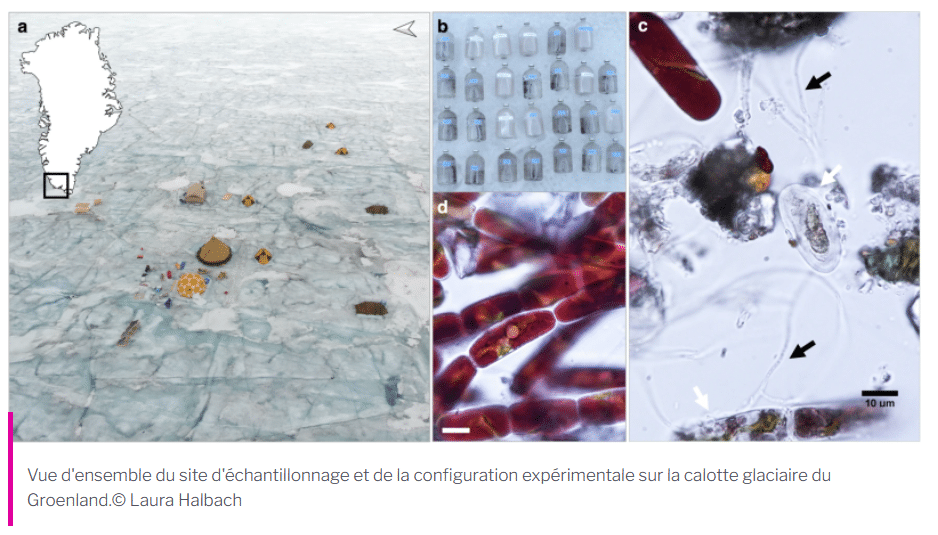Scientific results - CNRS Terre & Univers
A new study published in Nature Communications reveals how pigmented glacial microalgae (Ancylonema spp.) colonise newly exposed Greenland ice surfaces. The analyses show that these microalgae are extremely efficient at absorbing nutrients. This ability to adapt suggests that with global warming, these algae could colonise more ice surfaces, reducing the albedo and accelerating melting.
James Bradley & Rey Mourot CNRS MIO





